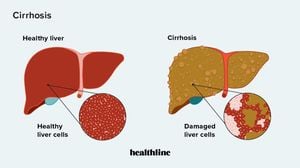Thailand is embarking on significant economic reforms aimed at bolstering growth and promoting sustainability amid global economic uncertainties. The Thai government has unveiled several policies aimed at not only revitalizing the economy but also ensuring it is resilient and adaptable to future challenges.
Recent initiatives have garnered attention as the country looks to navigate through economic pitfalls exacerbated by global factors such as inflation and supply chain disruptions. A primary focus of these reforms is attracting foreign investment by improving overall business conditions.
According to the Thai Finance Minister, "Our commitment to sustainable growth will pave the way for future generations," reflecting the government's vision for balancing economic progress with environmental responsibility. This emphasis on sustainability is seen as increasingly necessary as countries worldwide pivot toward more environmentally friendly practices.
The implementation of these policies involves new regulations and incentives aimed at making it easier for businesses to operate, especially for foreign firms interested in investing within Thailand's borders. Economic analysts have noted growing interest from investors, with one stating, "Investors are showing increasing interest, reflecting confidence in our economic direction." This sentiment is pivotal as confidence can translate to more stable investments, directly influencing economic growth.
Businesses are being encouraged to diversify and innovate, with recent awards for green technologies highlighting successful implementations. This focus on sustainable practices does not only aim to align with global trends but also showcases Thailand’s commitment to being part of the green energy revolution.
Rural areas, often marginalized during periods of economic growth, are now recipients of targeted policies aimed at improving infrastructure and access to technology. These initiatives are expected to empower local economies and integrate them more fully with urban centers.
For example, investments are being made to upgrade transportation links, enabling rural producers to access larger markets. This dual emphasis on urban and rural development has positioned Thailand as a potential leader among ASEAN countries. By bridging the gap between urban development and rural empowerment, Thailand aims to achieve balanced regional growth.
A significant portion of the policy framework includes partnerships with local and international stakeholders, fostering collaborative efforts to achieve common economic goals. This includes engaging with community leaders to understand their needs and perspectives, ensuring policies are effective and beneficial to all citizens.
Looking forward, the Thai government is setting ambitious targets for the economic recovery and growth phases post-pandemic, with plans to generate employment opportunities and improve the overall quality of life for its citizens. Such forward-thinking policies also address skills training and education improvements to equip the workforce for future demands.
Despite the potential challenges of implementation, there is cautious optimism within the economic sector. Political will, combined with expert insights, can drive these reforms effectively. Analysts remain hopeful, stating, "With the right execution, Thailand is on track to not only recover but thrive economically."
These measures come at a time when global competition is fierce, yet Thailand's strategic positioning, geographical advantages, and commitment to sustainable practices may just be the recipe for success. The country is taking significant strides toward transforming its economy, and as policies are rolled out, the focus will be on ensuring they translate to real, meaningful change for businesses and consumers alike.
Thailand’s economic future looks promising; with the right mix of innovation, sustainability, and inclusivity, it aims to become not just competitive but exemplary on the world stage.



